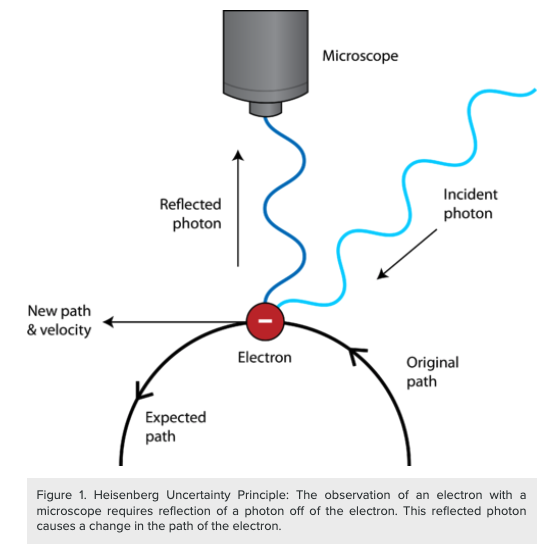In physics, there is a limitation on the measurement of particles called the Heisenberg Uncertainty principle. The principle says, “the position and the velocity of an object cannot both be measured exactly, at the same time” (source). The reason why is that the act of measuring the position of a particle changes the uncertainty in its velocity and the act of measuring the velocity of a particle changes the uncertainty in its position. The more precisely we measure either quantity, the greater the uncertainty in the other. The critical idea is that by observing a particle, we introduce uncertainty in what we can know about the particle because the act of measurement changes the particle.
In a similar way, assessing a learner changes that learner. There are three ways learners can change during the process of assessment.
- Every time we retrieve ideas from our memory, our ability to retrieve those ideas again is strengthened, even if we are unsuccessful in remembering the idea. Our memories are not like computers, they tend to strengthen as we revisit ideas and diminish otherwise.
- As we attempt tasks and are successful or not successful on a task within a particular domain, we adjust our self-image within that domain. When we repeatedly fail to accomplish a task, we tend to think of ourselves as unable to be successful. When we accomplish tasks too easily, we tend to put less effort into more challenging tasks.
- Some tasks and supports for accomplishing those tasks give us the opportunity to learn new ideas. As a result, every time we solve a new problem, we are changed a little by the experience.
I’ve often heard it said that during assessment learning stops, but it’s possible that lots of learning can be taking place during these times, depending, of course, on the nature of the assessment.

1 Pingback